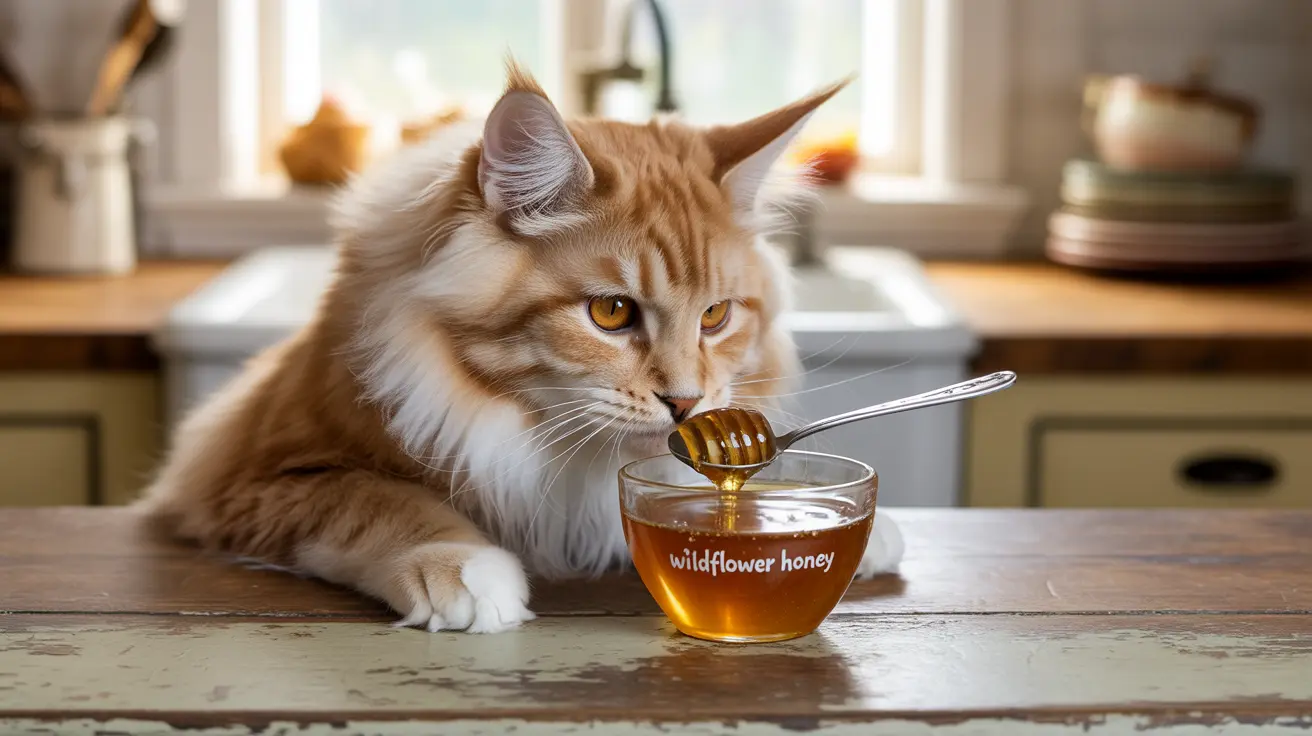Understanding Cats' Unique Dietary Needs
Cats are obligate carnivores, meaning their bodies are specifically designed to process and derive nutrients from meat. Unlike humans and some other pets, cats lack the necessary enzymes to efficiently digest sugars and carbohydrates, which make up the majority of honey's composition.
Most notably, cats don't have the ability to taste sweetness due to their lack of sweet taste receptors. This biological fact makes honey nutritionally unnecessary and potentially problematic for their digestive system.
The Composition of Honey and Its Effects on Cats
Honey consists primarily of sugars (about 80%) and water (17-18%), with minimal protein content. For cats, this sugar-heavy composition can lead to several health concerns:
- Digestive issues and stomach upset
- Potential weight gain and obesity
- Increased risk of diabetes
- Dental problems due to sugar content
- Possible allergic reactions
Risks of Feeding Honey to Cats
Immediate Health Concerns
When cats consume honey, they may experience immediate symptoms such as:
- Vomiting or regurgitation
- Diarrhea
- Gastrointestinal discomfort
- Lethargy
- Loss of appetite
Long-term Health Implications
Regular honey consumption can lead to more serious health issues:
- Development of diabetes
- Chronic obesity
- Dental decay
- Compromised immune system
- Persistent digestive problems
When Honey Might Be Used (Under Veterinary Guidance)
In rare circumstances, veterinarians might recommend honey for specific medical purposes, such as:
- Emergency treatment for hypoglycemia
- As a carrier for medication
- Topical wound treatment (in specific cases)
However, these uses should only occur under direct veterinary supervision and are not common practice.
Safe Alternatives to Honey for Cats
Instead of honey, consider these cat-appropriate treats:
- Commercial cat treats formulated for feline nutrition
- Small pieces of cooked lean meat
- Freeze-dried meat treats
- Veterinary-approved dental treats
Frequently Asked Questions
Can cats safely eat honey, and what risks should I be aware of?
While honey isn't toxic to cats, it's not safe for regular consumption. Risks include digestive upset, weight gain, diabetes, and dental problems. Cats lack the enzymes necessary to properly digest sugars found in honey.
Why is honey not recommended for cats despite not being toxic?
Cats are obligate carnivores without the ability to taste or properly digest sugars. Honey provides no nutritional benefits for cats and can lead to health issues due to its high sugar content.
What signs of digestive upset might my cat show after accidentally eating honey?
Signs include vomiting, diarrhea, lethargy, loss of appetite, and general gastrointestinal discomfort. If these symptoms persist, consult your veterinarian.
Are there any health benefits of giving honey to cats?
No, there are no proven health benefits of honey for cats. While honey has beneficial properties for humans, cats' digestive systems aren't designed to process or benefit from these properties.
What should I do if my kitten or diabetic cat consumes honey?
Monitor them closely for adverse reactions and contact your veterinarian immediately. Kittens and diabetic cats are particularly vulnerable to the negative effects of honey consumption.
Conclusion
While honey isn't toxic to cats, it offers no nutritional benefits and poses several health risks. As responsible pet owners, it's best to stick to species-appropriate treats and consult with your veterinarian about proper dietary choices for your feline friend.






